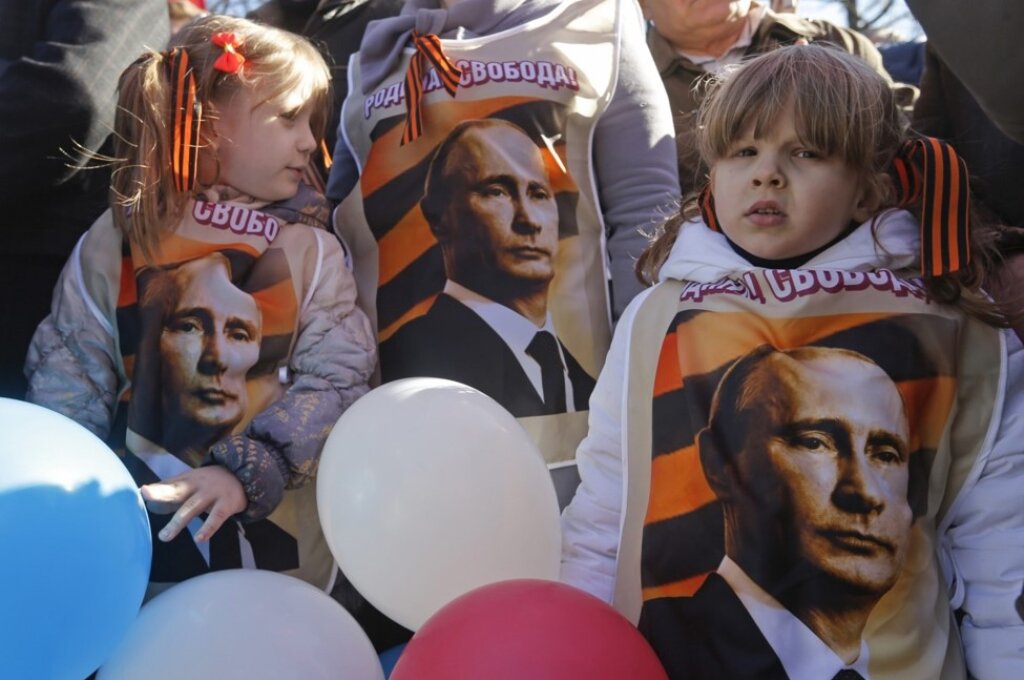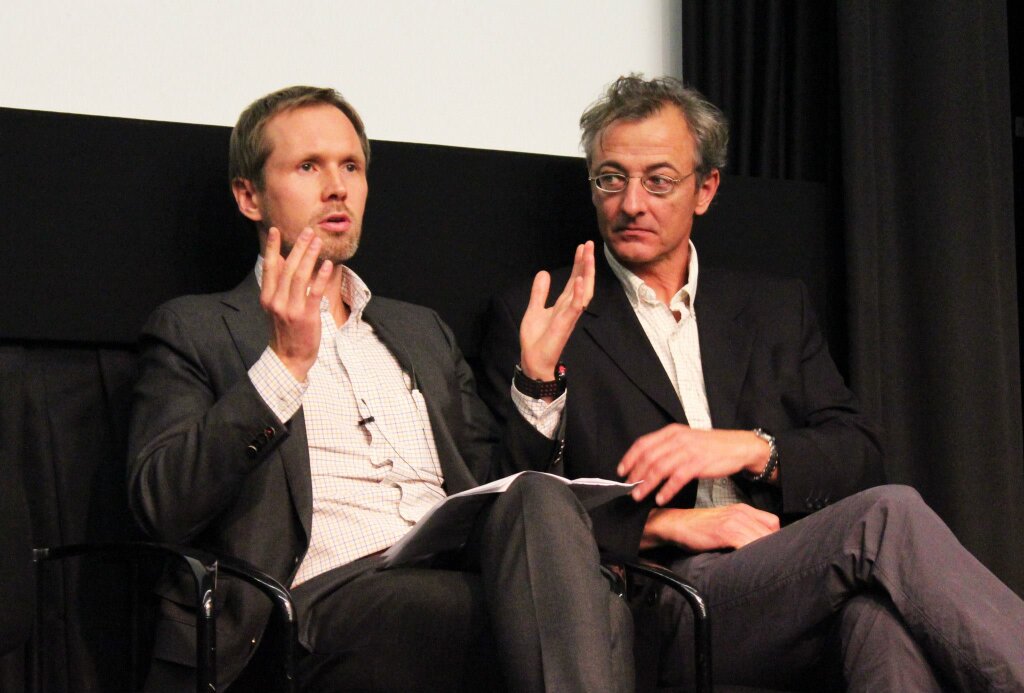Watch the event video here
In 2011 and 2012, Vladimir Putin faced a crisis of popularity. The announcement that he would be taking back the presidency from Dmitry Medvedev, plus blatant fraud in the 2011 legislative elections, sparked the largest protests Russia had seen in decades. Many Russians felt that the regime was not even pretending to care about public opinion. Putin’s approval rating, which had mostly floated in the 70s and up, plunged toward just 60 percent.
But then Russia annexed the Crimean peninsula and launched a war against Ukraine. Heady nationalism and a “rally around the flag” effect pushed Putin’s approval rating above 80 percent, where it has remained ever since despite sluggish economic growth. Surveys show that the effect does not benefit Putin alone, but his government as a whole. For example, after years of ambivalence, most post-Crimea Russians say that their country is on the right track.
But what accounts for that sudden change? What did millions of Russians experience that, in such a short period of time, shored up their support for Putin and his government? According to Graeme Robertson, the answer is a kind of “collective euphoria,” an intense, positive emotional identification with Putin and the state, which is conveyed through political engagement. Robertson, who is a professor of political science at the University of North Carolina at Chapel Hill, shared his research (from collaborative work with Samuel Greene of King’s College London) at the Jordan Center on April 13.
“Experiencing an event through social media or television can create a sense of … actual participation,” Robertson said. “This sense of collective participation, we argue, can create a feeling of collective euphoria, a feeling of collective belonging.”
“This helps to create community amongst the people who experience it. It makes them feel linked to their leaders … and it generates broad, positive emotional connections that have wide-ranging effects,” Robertson added.
For many years, research on how authoritarian regimes marshalled support from the population at large focused on either repression or materialist explanations. Scholars studied the various forms of coercion that authoritarian governments employed to wring compliance from their people, as well as their capacity to provide baseline political and economic stability.
Yet, repression and stability alone do not explain why so many contemporary authoritarians are genuinely popular with their constituents, said Robertson. In both authoritarian and democratic societies, politics are often about emotions—including the positive, affirming feeling of belonging to the “normal, healthy” consensus, which is contrasted against deviant and subversive outsiders. Even in authoritarian states, politics are not exclusively top-down. Popular emotions operate in concert with state messaging.
To see this process at work, Robertson surveyed Russians at different stages of the Kremlin’s “conservative values campaign,” which Putin rolled out concurrently with his third term. Robertson focused on urban, well-educated, and middle or upper-class Russians, that is, a group already less enamoured with Putin than the country as a whole. After Russia annexed Crimea, Robertson observed a large jump in this group’s support for Putin, from approximately 50 to 80 percent. But he also saw significant increases on “deeper” questions, such as whether they approved of how the country was governed, trusted Russian leaders, and had hope for the future.
Robertson also measured respondents’ degrees of political engagement—how much media they consumed, their level of interest in politics, how often they discussed politics with friends, and so on. After controlling for factors such as employment sector and wealth, he found that political engagement had a significant effect on how much Russians moved toward support for Putin and his government. Other factors, such as family prosperity, also mattered, with well-off Russians tending to increase their support for the regime even more.
“The increase in emotional engagement is much larger, substantially larger, for people who are actually consuming more politics, who are more into this collective moment around Crimea,” Robertson said. What’s more, “the increase in positive emotions has a big effect on the wider perceived wellbeing.”
For example, Robertson found that positive emotions associated with participating in the national post-Crimea moment had a large effect on Russians perceiving that high-level corruption is less of a problem. Watching lots of state television had a similar effect, but it was mediated through people’s positive emotions. In other words, political engagement—watching television, chatting about politics with friends, monitoring events on social media—increased Russians’ support for Putin’s government, but their degree of “collective euphoria” mediates the effect.
Robertson’s research adds complexity to top-down, coercive models of authoritarianism.
“It’s not just a simple, one-way street where the regime beats people over the head until it gets the answer it wants. There is actually a collective emotional engagement in this process that comes from below and that interacts with the politics that are coming from above,” Robertson said.
Authoritarianism in Russia is “co-constructed by the interaction between the state and parts of the society with which the state interacts,” he said.



